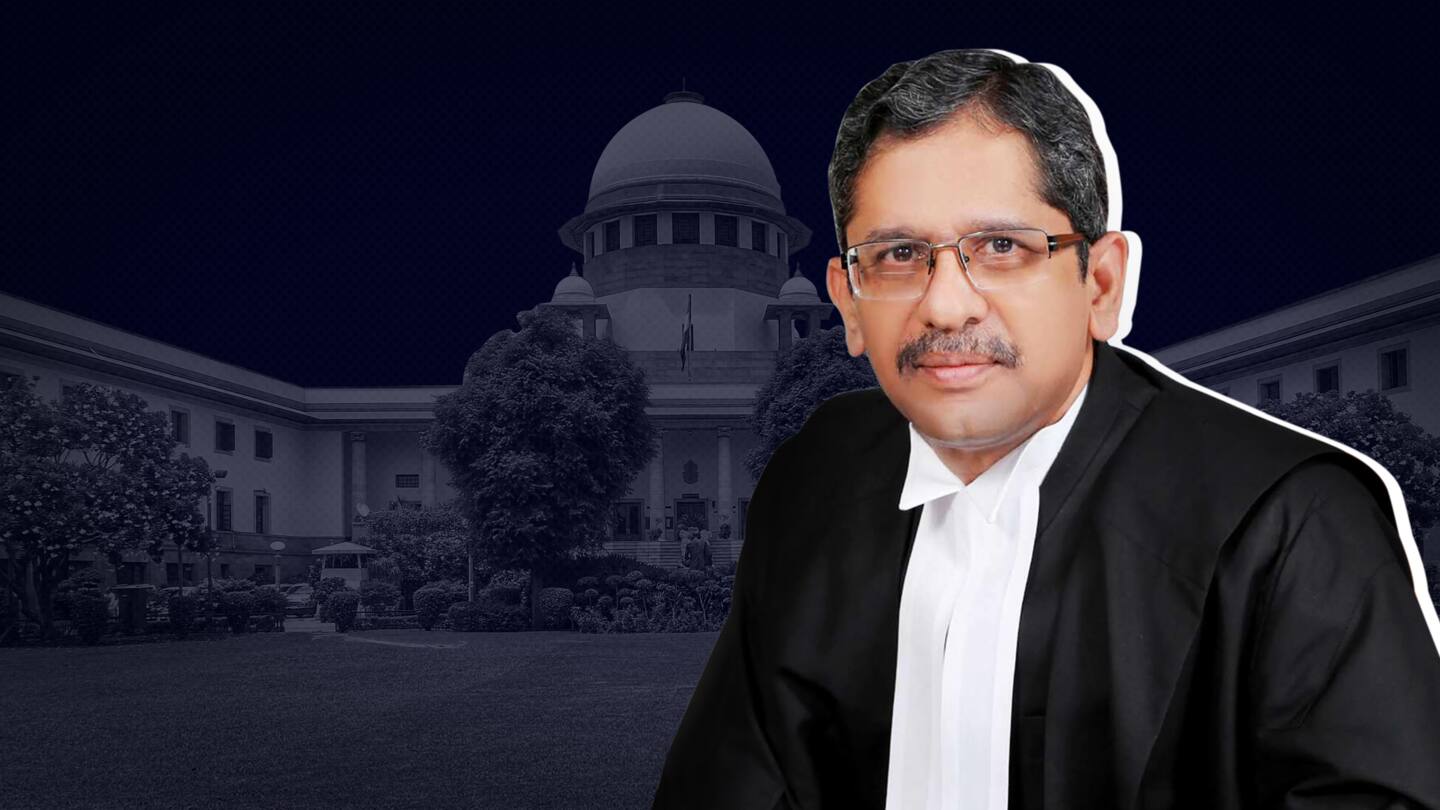
Justice NV Ramana sworn in as Chief Justice of India
What's the story
Justice NV Ramana was sworn in as the 48th Chief Justice of India (CJI) this morning.
President of India Ram Nath Kovind administered him the oath of office at the Rashtrapati Bhavan in New Delhi at 11 am today.
Justice Ramana took over from former CJI SA Bobde, who retired on Friday.
Here are more details on this.
Quote
'These are testing times as we battle COVID-19'
Bidding farewell to Justice Bobde, Justice Ramana reportedly said, "We are going through testing times as we battle the COVID-19 wave."
"Lawyers, judges and court staff are all affected due to the virus. Some hard measures may be necessary to break the chain of transmission. We can defeat the pandemic together with dedication," he was quoted as saying.
Information
Former CJI had recommended Justice Ramana last month
Justice Ramana was recommended by the former CJI for appointment in a letter addressed to the Ministry of Law and Justice on March 24. Earlier this month, President Kovind approved the recommendation and appointed him as the new CJI.
Details
He will have a tenure until August 26, 2022
Justice Ramana is the first judge from the Andhra Pradesh High Court to become the Chief Justice of India, Bar & Bench reported.
He will reportedly have a tenure for one year and four months, until August 26, 2022.
Prior to his elevation to the Supreme Court in 2014, he had been serving as the Chief Justice of the Delhi High Court.
Career
A brief about Justice Ramana's illustrious career
Justice Ramana was born on August 27, 1957 in Krishna district of Andhra Pradesh.
After working as a journalist for a brief time, he enrolled as an Advocate on February 10, 1983.
He subsequently practiced in the High Court of Andhra Pradesh, Central and Andhra Pradesh Administrative Tribunals, and the Supreme Court of India in Civil, Criminal, Constitutional, Labor, and Election cases.
Judgments
He has been a part of several key judgments
During his tenure of over seven years at the Supreme Court, Justice Ramana reportedly authored 156 judgments.
He has been a part of several key cases, including the order to review the suspension of internet in Jammu and Kashmir.
He was also in the panel of judges which held that the Chief Justice's office comes under the purview of the Right to Information Act.